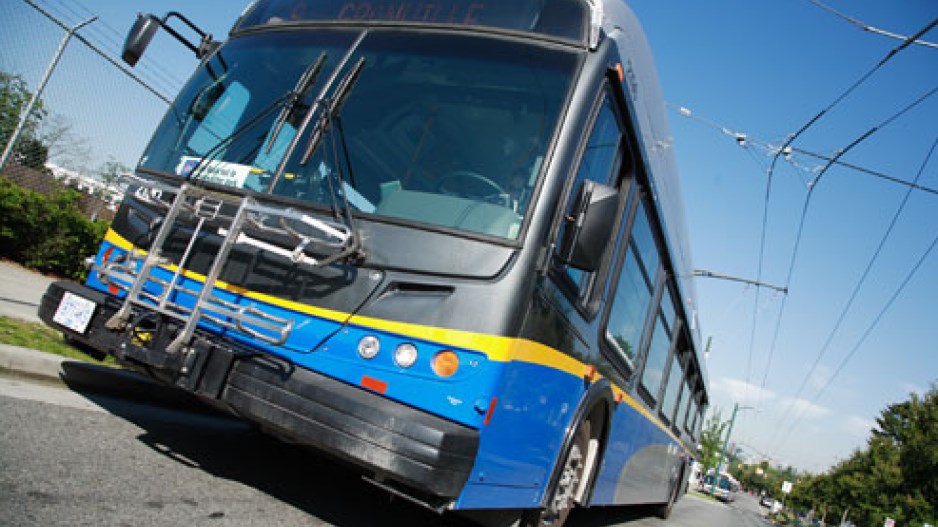TransLink should be broken up, according to a core services review.
The report, released to BIV January 11 after an October Freedom of Information request , was submitted to TransLink’s board last August when interim CEO Doug Allen finished his $35,000-a-month contract.
The review said responsibility for building and maintaining roads and bridges should be moved out of TransLink and commercial activity, including real estate, should be shifted to a separate entity. The review committee, led by Allen, highlighted the inherent conflict between TransLink’s transit and roads mandates, which has “resulted in an enterprise with vague goals about producing regional transportation plans.”
“A major factor contributing to TransLink’s lack of focus on ridership is its secondary mandate to improve roads and bridges,” said the report. “This makes it difficult for the TransLink board and executive to be clear about the imperative to improve public transit and ridership. It is also a conflict mandate as the more efficiently the roads and bridge system moves vehicles, the less appealing public transit becomes.”
TransLink operates Coast Mountain Bus Company, SeaBus, HandyDart, SkyTrain and West Coast Express and owns and maintains the Knight Street Bridge, Pattullo Bridge, Golden Ears Toll Bridge, Westham Island Bridge and Canada Line bike and pedestrian bridge. It also funds the operation, maintenance and rehabilitation of the region’s 600-kilometres major roads network.
To move forward on splitting-up TransLink, it would have to develop a business case.
But it may be easier said than done for the company, which relies on fuel and property taxes for more than half of its $1.4 billion a year budget.
Risks and challenges include: it is unlikely to build consensus with municipalities; key stakeholders support the status quo and may be reluctant to participate; a new agency requiring enabling legislation may be required; the transfer of responsibilities will require a transfer of revenue and funding; and the business case may support the status quo.
“It is unlikely that the full transfer of responsibility could be achieved before the end of 2017, at the earliest, due to the time necessary to draft and enact enabling legislation. May 2017 is the next provincial election,” said the document.
As for moving real estate to another entity, inaction or no decision from the board and political interference are the risks.
When contacted by BIV on January 19, TransLink board chair Don Rose declined to answer questions about whether the board would adopt any of the recommendations.
However, according to a prepared statement, Rose stated that TransLink appreciated “the time and effort that went into conducting this review and the observations and advice [Allen] has provided to the board and management at TransLink. … This information will be one of many resources available to the new CEO of TransLink.”
The report also said the $194 million Compass card program, which was announced as a $100 million project in 2009 and is finally being rolled out, was supposed to help reduce fare avoidance rather than increase ridership. Its role in helping increase ridership is “still undefined.”
The report recommended an independent commission on mobility pricing to plot the way forward for increasing transit ridership rather than road and bridge funding. It proposed the commission would work for two years on a plan to tax drivers and, if politically endorsed, it would design the system and implement it between 2018 and 2025.
“Risks and challenges to implementation are numerous on both the technical and the public acceptability fronts — several orders of magnitude more complex than the Compass Card project,” the report said.
Meanwhile, Allen’s report to the board and advice to his successor, Cathy McLay, revealed that he was surrounded by five people during his six months in office: consultants Lynda Cranson (strategic organizational adviser), Catherine Holt (strategic business adviser) and Yvette Wells (Compass adviser) and executive assistants Avril Winn and Ann Krowchuk.
Cranston was forced to resign as CEO of Provincial Health Services Agency in 2013 after she approved $660,000 in unauthorized pay raises to managers despite a government freeze. She now chairs B.C. Rapid Transit Corp., TransLink’s SkyTrain and West Coast Express subsidiary.
Holt co-founded Sage Management Consultants with Allen. She spent five years as an assistant deputy minister in the premier’s office during the NDP administration in the 1990s. Wells is also a former assistant deputy minister who was involved in the privatization of BC Rail.
The consultants were on sole-sourced contracts. Sage Group Projects Inc. has been paid $266,204.62 for the services of Holt and Wells. The Sage contract winds up at the end of January. J.G. Cranston and Associates was paid $110,058.55.
@bobmackin




